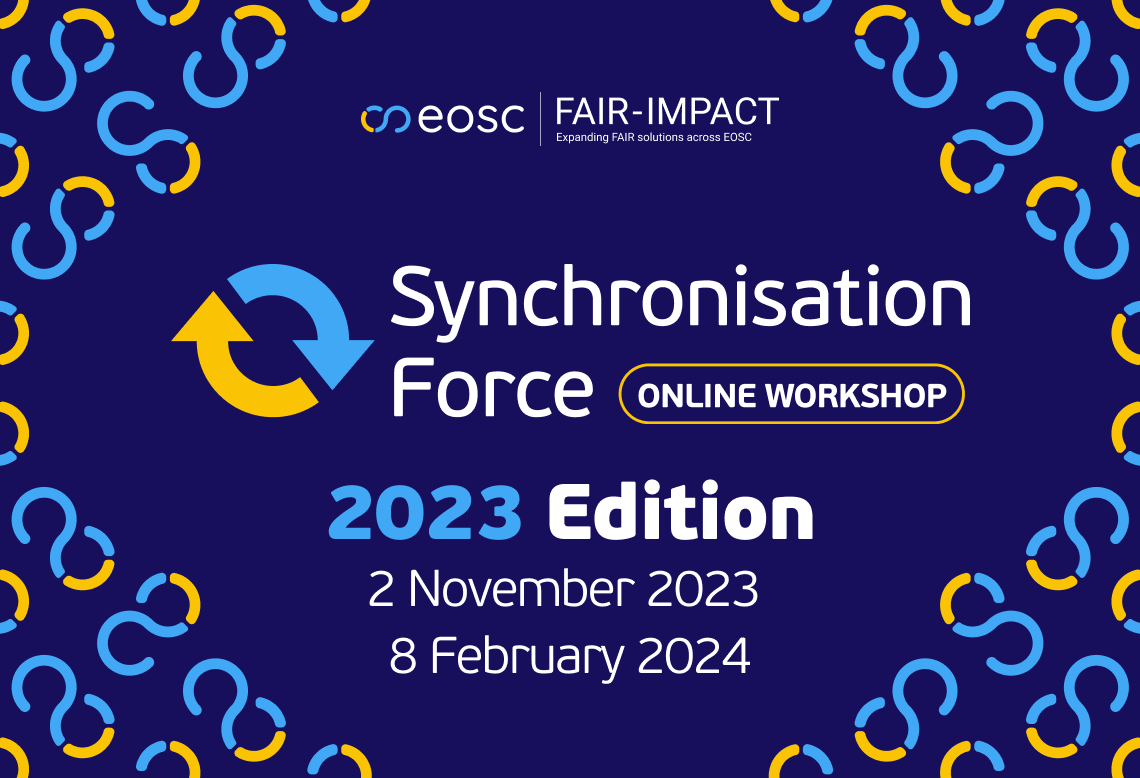
Synchronisation Force 2nd Workshop Session 3: Persistent identifiers
- This event has passed.

The goal of this session is to provide input for the PID Policy assessment regarding the more qualitative factors, especially those related to trust and sustainability. The session will begin with short presentations of the PID Compliance Assessment Tool done in FAIRCORE4EOSC and the integrated PID use cases in FAIR-IMPACT. Representatives of these use cases, PIDs in data production workflows, PIDs in complex data citation and PIDs and sensitive data, will reflect on the relevant PID solutions and requirements and identify gaps. They will also describe how they evaluate different PID services and systems.
Chair: Josefine Nordling, CSC
Rapporteur: Liisa Marjamaa-Mankinen, CSC
Following this, the workshop will be organised around three questions:
- 1. What does your project or initiative do to implement PIDs? (Please provide any relevant links.)
- 2. What are the guiding principles for you when choosing a PID system or service?
- 3. What does in your opinion constitute trust in a PID service?
In the EOSC context this session is related to the objective OO11 Implement the EOSC persistent identifier (PID) policy and architecture by 2025 in the Strategic Research and Innovation Agenda and relates to the following recommendations in the draft EOSC Multi-Annual Roadmap (MAR) 2025 and 2026–2027:
- Promote and sustain the use of Persistent Identifiers (PIDs) that are already common practice. Support activities where PID usage is not yet a common practice. (2.1 A, 2.2 H)
and it supports the national and institutional level recommendation:
- Integrate widely used and adopted PIDs into institutional services and incentivise usage of PID technologies being developed in EOSC (like PID Meta Resolver, Data Type Registry, PID graph, PID Policy Compliance Assessment Toolkit). (2.2 I, 2.3 K)
In this session work we will also use some recommendations from the Knowledge Exchange report on PIDs, read more: https://www.knowledge-exchange.info/event/pids-risk-and-trust
The expected outcome of this session is to produce a short report on the current PID landscape in conjunction with EOSC and EOSC PID Policy implementation, as well as to provide input for PID policy assessment CAT especially regarding the more qualitative assessment.